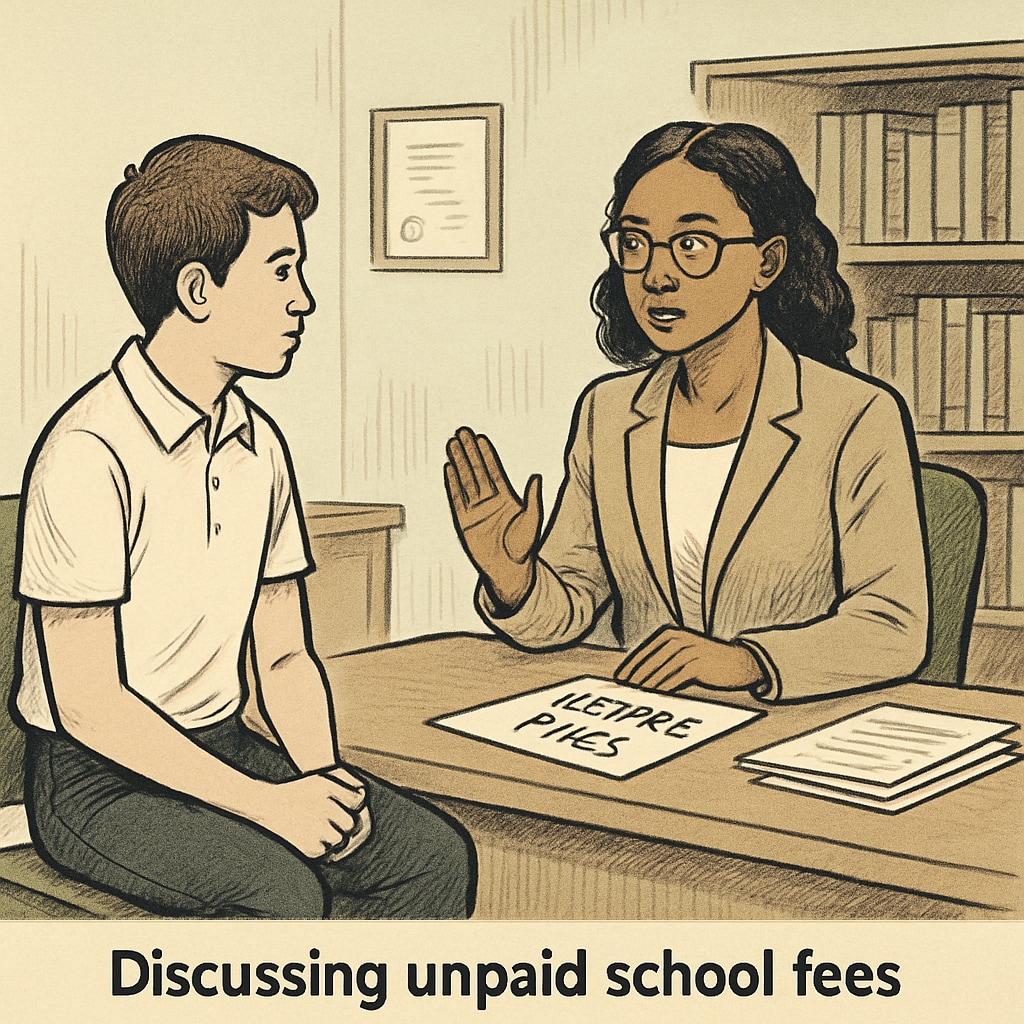For students pursuing academic or professional aspirations, access to their transcripts is often a critical step. However, issues can arise when unpaid school fees or “unpaid balances” stand in the way. This situation becomes particularly urgent when students need their transcripts for essential purposes, such as PRC (Professional Regulation Commission) exam applications. This article discusses the complexities of unpaid balances and transcript access, examines the rights and responsibilities of educational institutions and families, and offers practical solutions for navigating this challenge.
The Policy Dilemma: Balancing Institutional Rights and Student Needs
Educational institutions often implement policies that restrict access to official transcripts until outstanding fees are paid. These policies are not without justification. Schools rely on tuition fees to sustain operations, pay staff, and maintain facilities. Allowing students to access transcripts without clearing debts could undermine their financial stability. Yet, these restrictions can hinder students’ personal and professional development, particularly when they need transcripts to pursue higher education, job opportunities, or licensure exams such as the PRC.

For example, a student planning to take the PRC exam may find themselves in a difficult position if their school withholds their transcript due to unpaid fees. Without the transcript, they cannot complete the application process, delaying their career progression. This creates a cycle where the student cannot secure income to repay the fees, further complicating the situation.
Exploring Alternatives: Bridging the Gap
To address the issue, some educational institutions have adopted alternative solutions. These policies aim to balance the school’s financial needs with the student’s right to access their academic records. Common approaches include:
- Provisional Transcripts: Some schools issue unofficial or provisional transcripts, allowing students to meet immediate needs while still holding them accountable for unpaid balances.
- Payment Plans: Institutions may offer flexible payment plans, enabling families to clear debts in manageable installments without delaying access to critical documents.
- Waivers or Scholarships: In cases of extreme financial hardship, schools may provide partial waivers or financial aid to help families resolve outstanding balances.
- Third-Party Mediation: Some organizations mediate between schools and families to negotiate settlements or provide financial assistance.
Student rights organizations and advocacy groups often play a role in promoting fair policies that protect both parties’ interests. However, the implementation of these solutions varies widely across institutions, leaving many students and families unsure of their options.

Practical Guidance for Families Facing This Challenge
For families navigating unpaid school fees and transcript access issues, the following steps can be helpful:
- Communicate with the School: Open a dialogue with school administrators to understand the specific policies and explore available options.
- Request a Payment Plan: If immediate payment is not feasible, inquire about installment payment options or partial payments.
- Document Financial Hardship: Provide evidence of financial hardship, such as income statements, to support requests for waivers or assistance.
- Seek External Support: Look for community organizations or non-profits that offer financial aid or mediation services.
- Understand Legal Rights: Research local laws and regulations regarding transcript access and unpaid balances, as some jurisdictions have specific protections in place.
By taking these proactive steps, families can work towards resolving the issue while minimizing disruptions to the student’s academic or professional plans.
Looking Ahead: A Call for Balanced Policies
Ultimately, the issue of unpaid school fees and transcript access highlights the need for balanced policies that consider both institutional sustainability and student welfare. Educational institutions are encouraged to adopt transparent, flexible approaches that address financial constraints without disproportionately impacting students’ futures. Policies that prioritize collaboration and mutual understanding can pave the way for more equitable solutions.
As a result, students can continue their journey towards academic and professional success, while schools maintain their financial health. By addressing this challenge through dialogue and compromise, we can create a system that supports both education and opportunity for all.
Readability guidance: This article uses short paragraphs, lists, and clear transitions to ensure readability. Overuse of passive voice and long sentences has been avoided to maintain clarity and engagement.


